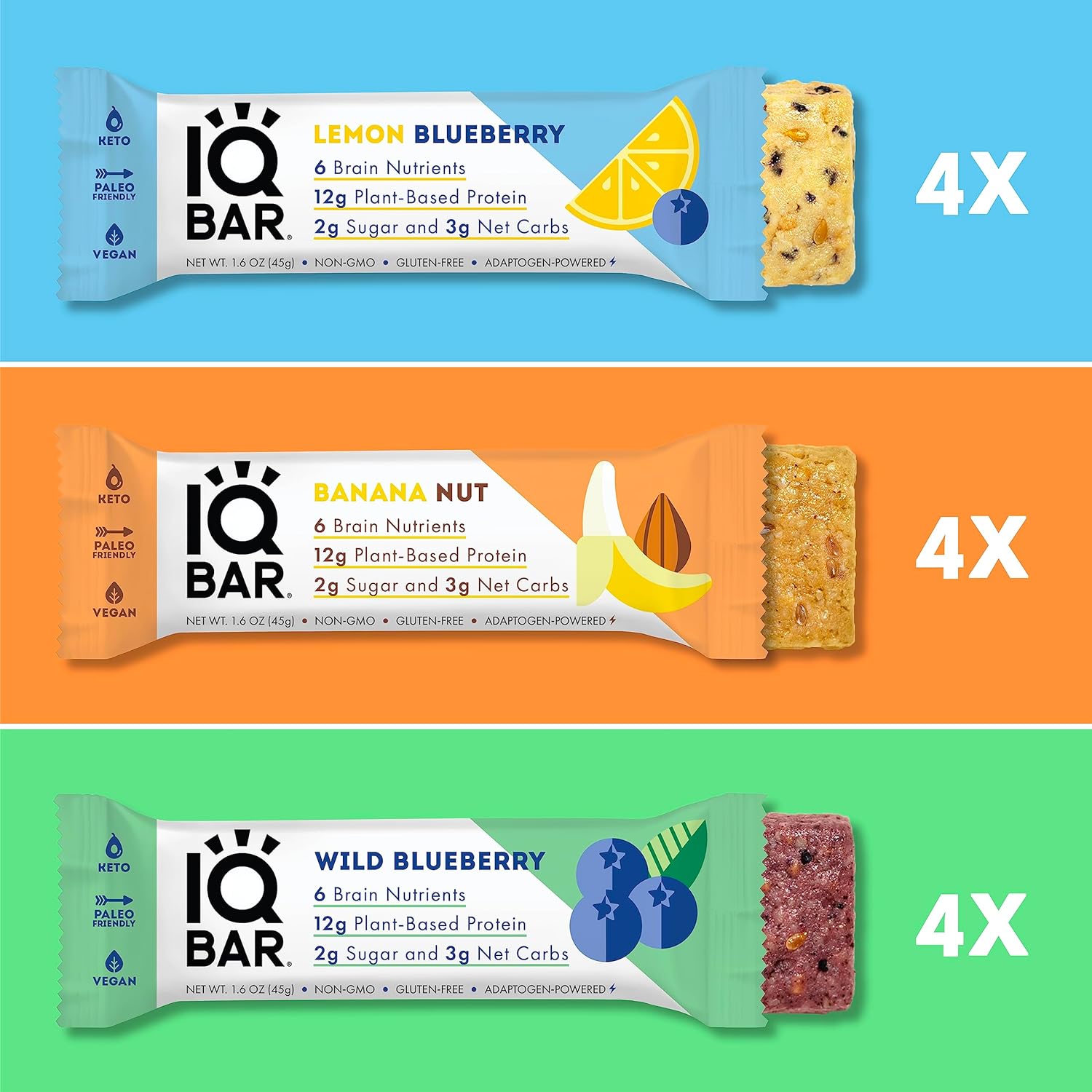Are you tired of feeling sluggish and constantly battling cravings for unhealthy foods? If so, it’s time to consider the ideal keto diet. This article will take you on a journey from being carb-dependent to becoming a fat-adapted individual. Discover the secrets behind the keto diet that have been sweeping the health and wellness world, and learn how this revolutionary diet can transform your body and your life. Say goodbye to constant hunger and hello to sustained energy and weight loss. It’s time to embark on your keto journey and unlock your body’s true potential.
What is a keto diet?
A keto diet, short for ketogenic diet, is a low-carbohydrate, high-fat diet that has gained popularity in recent years. It is designed to shift your body’s fuel source from carbohydrates to fats, resulting in a metabolic state known as ketosis. In ketosis, your body starts using ketones, a byproduct of fat breakdown, as its primary source of energy instead of glucose from carbohydrates.
Definition
The keto diet is characterized by its macronutrient composition, which typically consists of high fat, moderate protein, and very low carbohydrate intake. It typically involves reducing carbohydrate intake to 20-50 grams per day, or about 5-10% of total daily calories, while increasing fat consumption to 60-75% and maintaining protein intake at 15-30%.
Principles
The main principle of the keto diet is to drastically reduce carbohydrate intake, forcing the body to rely on fat for fuel. When you consume low levels of carbohydrates, your insulin levels decrease, and your body starts breaking down stored fat into ketones. These ketones serve as an efficient and sustainable source of energy for the body and the brain. By adhering to the specific macronutrient ratios, you can achieve and maintain a state of ketosis.
Benefits
There are numerous potential benefits associated with following a keto diet. One of the primary benefits is weight loss. When your body is in ketosis, it becomes highly efficient at burning fat for fuel, which can lead to accelerated weight loss. Additionally, the keto diet has been shown to improve insulin sensitivity, reduce inflammation, and lower triglyceride levels. Some individuals also report experiencing increased mental clarity, improved physical performance, and reduced hunger cravings while following a keto diet.
Carb dependency and its effects
Before diving into the benefits of the keto diet, it’s important to understand the effects of carb dependency on the body.
Carbohydrate metabolism
Carbohydrates are the body’s preferred source of energy. When carbohydrates are consumed, they are broken down into glucose, which is then used by the body as fuel. However, this reliance on carbohydrates can lead to a cycle of constant energy peaks and crashes, as well as increased hunger and cravings for more carbohydrates.
Blood sugar fluctuations
Consuming a diet high in carbohydrates can cause frequent spikes and drops in blood sugar levels. These fluctuations can lead to feelings of fatigue, irritability, and difficulty focusing, commonly known as the “sugar crash.” Additionally, high blood sugar levels can contribute to insulin resistance, a condition in which the body becomes less responsive to the hormone insulin, which is responsible for regulating blood sugar levels.
Insulin resistance
Insulin resistance is often associated with conditions like obesity, type 2 diabetes, and metabolic syndrome. When the body becomes insulin resistant, it struggles to efficiently process carbohydrates, leading to elevated blood sugar levels and increased fat storage. This vicious cycle of insulin resistance and weight gain can be difficult to break without making dietary changes.
Energy crashes
Relying on carbohydrates for energy can result in energy crashes and feelings of fatigue. When your body runs out of readily available glucose, your energy levels plummet. This dip in energy can make it challenging to sustain physical activity and maintain productivity throughout the day.
Transitioning to fat adaptation
To break free from carb dependency and reap the benefits of the keto diet, transitioning to fat adaptation is crucial.
Understanding ketosis
Ketosis is a natural metabolic state in which the body begins to preferentially burn fat for energy instead of carbohydrates. It occurs when carbohydrate intake is significantly limited, and the body turns to stored fat for fuel. When you enter a state of ketosis, your body produces ketones, which are molecules that serve as an alternate fuel source for the brain and muscles.
Reducing carbohydrate intake
The first step in transitioning to fat adaptation is decreasing your carbohydrate intake. This typically involves cutting out or minimizing high-carbohydrate foods such as bread, pasta, rice, and sugary snacks. Instead, focus on consuming carbohydrates primarily from non-starchy vegetables and small amounts of low-glycemic fruits.
Increasing healthy fat consumption
In a keto diet, healthy fats become a primary source of energy. Incorporating foods rich in healthy fats, such as avocados, nuts, seeds, and oils like coconut oil and olive oil, helps provide the necessary fuel for your body’s energy needs.
Implementing time-restricted feeding
Another helpful strategy in transitioning to fat adaptation is implementing time-restricted feeding, also known as intermittent fasting. This approach involves limiting your eating window to a specific period each day, typically 8-10 hours, and fasting the remaining 14-16 hours. This allows your body to deplete its glycogen stores, promoting the utilization of stored fat for energy.
Benefits of fat adaptation
Once you’ve successfully adapted to burning fat for fuel, you can expect to experience several benefits.
Weight loss
One of the most significant benefits of fat adaptation is weight loss. By relying on stored fat for energy, your body becomes highly efficient at burning excess fat stores. This can lead to accelerated weight loss, especially when combined with a calorie deficit and regular physical activity.
Steady energy levels
Unlike the energy crashes associated with carb dependency, fat adaptation provides a more consistent and steady source of energy. By using ketones as a fuel source, you avoid the rapid fluctuations in blood sugar levels that can leave you feeling drained and lethargic. This sustained energy can enhance your overall productivity and vitality throughout the day.
Enhanced mental clarity
Many people report experiencing improved mental clarity and focus while following a keto diet. The stable energy levels provided by fat adaptation can help reduce brain fog and enhance cognitive function. Additionally, ketones have been shown to have neuroprotective effects, potentially benefiting brain health and reducing the risk of age-related cognitive decline.
Improved physical performance
Contrary to popular belief, carbohydrates are not the only source of fuel for physical activity. In fact, fat adaptation can enhance aerobic endurance and performance, particularly in endurance athletes. By training your body to utilize fat as its primary fuel source, you can avoid the energy crashes often experienced during prolonged exercise and perform at a higher level for longer durations.
The role of ketones
Ketones play a crucial role in the keto diet and are responsible for many of its benefits.
Ketones as an alternative fuel source
When the body is in a state of ketosis, it begins producing ketones from the breakdown of fat. These ketones, specifically beta-hydroxybutyrate (BHB), acetoacetate (AcAc), and acetone, serve as an efficient alternative fuel source for cells, particularly the brain. By utilizing ketones, the body can continue functioning even in the absence of glucose from carbohydrates.
Effects on brain function
The brain relies heavily on glucose as its primary energy source, but it also has the ability to utilize ketones. In fact, some studies suggest that the brain functions more efficiently and optimally when fueled by ketones. Ketones provide a more stable and sustainable supply of energy to the brain, which can result in improved cognitive function, mental clarity, and focus.
Potential therapeutic applications
Beyond weight loss and improved cognitive function, ketones may have therapeutic applications for various health conditions. Research has shown promising results regarding the use of the keto diet and ketone supplementation in managing conditions like epilepsy, Alzheimer’s disease, Parkinson’s disease, and certain types of cancer. While more research is needed, the potential therapeutic benefits of ketones are an exciting area of study.
Healthy fats and sources
When following a keto diet, it’s crucial to choose the right types of fats to support overall health and well-being.
Choosing the right fats
Not all fats are created equal, and it’s essential to prioritize healthy fats over unhealthy ones. Opt for monounsaturated and polyunsaturated fats, such as those found in avocados, nuts, seeds, and oils like olive oil and flaxseed oil. These fats provide essential fatty acids and have been linked to various health benefits, including improved heart health and reduced inflammation.
Avocado
Avocado is an excellent source of healthy fats on a keto diet. It is rich in monounsaturated fats, which have been shown to support heart health and aid in weight management. Avocado also provides essential vitamins and minerals, including potassium and vitamins K and E.
Coconut oil
Coconut oil is a staple in many keto diets due to its high fat content, especially medium-chain triglycerides (MCTs). MCTs are easily converted into ketones by the liver, providing a quick and efficient source of energy. Additionally, coconut oil has antimicrobial and anti-inflammatory properties.
Olive oil
Olive oil is another healthy fat option that is commonly used in keto cooking and dressings. It is packed with monounsaturated fats and antioxidants, which contribute to heart health and reduce inflammation. Olive oil also provides a rich, flavorful taste to meals.
Nuts and seeds
Nuts and seeds are excellent sources of healthy fats, protein, and essential nutrients. Almonds, walnuts, chia seeds, and flaxseeds are particularly high in omega-3 fatty acids, which have been associated with numerous health benefits, including reduced inflammation and improved brain function.
Protein intake and timing
Protein is a crucial macronutrient that plays a vital role in building and repairing tissues, as well as supporting various bodily functions. However, it’s important to strike the right balance with protein intake on a keto diet.
Importance of protein
Protein is essential for maintaining muscle mass and supporting overall health. It provides amino acids, the building blocks of proteins, which are necessary for repairing and rebuilding tissues. Protein is also satiating, meaning it helps you feel full and satisfied, making it an important component for weight management.
Calculating protein needs
While moderate protein intake is recommended on a keto diet, the exact amount can vary depending on factors such as age, sex, activity level, and individual goals. A general guideline for protein intake on a keto diet is around 0.6-1 gram of protein per pound of lean body mass. To determine your lean body mass, subtract your body fat percentage from your total weight.
Choosing high-quality sources
When incorporating protein into your keto diet, it’s essential to choose high-quality sources. Opt for lean meats like chicken, turkey, and fish, as well as grass-fed beef and pasture-raised eggs. These sources not only provide high-quality protein but also contain important nutrients like omega-3 fatty acids and essential vitamins and minerals.
Timing protein consumption
Timing protein consumption throughout the day can help optimize muscle protein synthesis and support muscle recovery. Research suggests that spreading protein intake evenly throughout the day, rather than consuming a large amount in one sitting, may be more beneficial for muscle protein synthesis. Aim to include a source of protein in each meal and snack to support your body’s needs.
Supplementation on a keto diet
While a well-formulated keto diet can provide all the necessary nutrients, certain supplements may be beneficial to address specific nutrient needs.
Electrolyte imbalance
When transitioning to a ketogenic diet, electrolyte imbalances can occur due to the diuretic effect of reducing carbohydrate intake. Supplementing with electrolytes like sodium, potassium, and magnesium can help maintain proper fluid balance and support overall well-being. Consider adding electrolyte-rich foods or using electrolyte supplements specifically designed for the keto diet.
Omega-3 fatty acids
Omega-3 fatty acids, particularly EPA and DHA, are essential polyunsaturated fats that play a critical role in brain health, heart health, and reducing inflammation. While fatty fish like salmon, mackerel, and sardines are excellent sources of omega-3s, supplementation with fish oil or algae oil capsules may be necessary, especially for individuals who do not consume fish regularly.
Vitamin D
Vitamin D is essential for bone health, immune function, and overall well-being. Adequate sun exposure and consumption of fatty fish can help maintain optimal vitamin D levels. However, depending on factors like geographical location and lifestyle, supplementation may be necessary to ensure adequate vitamin D intake on a keto diet.
Magnesium
Magnesium is involved in over 300 biochemical reactions in the body and plays a vital role in energy production, muscle function, and maintaining overall health. Due to its involvement in carbohydrate metabolism, magnesium needs may increase while following a keto diet. Consider supplementing with magnesium citrate or magnesium glycinate to meet your daily requirements.
MCT oil
MCT oil, derived from coconut or palm kernel oil, contains medium-chain triglycerides that are metabolized quickly and efficiently into ketones by the liver. Adding MCT oil to your diet can provide an extra source of ketones and potentially increase fat burning. Start with a small amount, as excessive consumption can cause digestive discomfort.
Tips for a successful keto diet
To ensure success on a keto diet, consider implementing the following tips:
Meal planning and preparation
Planning and preparing your meals in advance can help you stay on track and avoid reaching for convenient, carb-heavy options. Meal prepping allows you to have keto-friendly options readily available, reducing the likelihood of making impulsive food choices.
Staying hydrated
Remaining hydrated is essential for overall health and well-being, especially on a keto diet. The depletion of glycogen stores and reduction in insulin levels can lead to increased fluid loss. Aim to drink enough water throughout the day and consider adding electrolytes to your water to maintain proper hydration and electrolyte balance.
Tracking macronutrients
Keeping track of your macronutrient intake is crucial on a keto diet. Apps and online tracking tools can help you monitor your carbohydrate, fat, and protein consumption, ensuring you stay within your targeted ranges. Tracking your macronutrients can also provide valuable insights into your eating patterns and help identify any areas for adjustment.
Minding micronutrient intake
While focusing on macronutrients is essential, don’t forget about your overall micronutrient intake. Consuming a wide variety of nutrient-dense foods, such as green leafy vegetables, colorful fruits, and high-quality protein sources, can help ensure you’re receiving an adequate range of vitamins, minerals, and antioxidants.
Managing keto flu symptoms
Some individuals may experience temporary side effects when transitioning to a keto diet, commonly referred to as the “keto flu.” Symptoms can include fatigue, headaches, and muscle cramps. To alleviate these symptoms, ensure you’re getting enough electrolytes, staying hydrated, and gradually reducing carbohydrate intake to allow your body to adapt more gradually.
Potential challenges and considerations
While the keto diet can be effective for many individuals, there are some potential challenges and considerations to keep in mind.
Nutrient deficiencies
Restricting certain food groups, such as high-carbohydrate foods, can increase the risk of nutrient deficiencies. It’s important to ensure you’re consuming a wide variety of nutrient-dense foods to meet your overall nutrient needs. Consider working with a healthcare professional or registered dietitian to optimize your nutrient intake and address any potential deficiencies.
Social implications
Following a keto diet can pose social challenges, as many social gatherings and events revolve around carbohydrate-rich foods. It’s essential to communicate your dietary needs to friends and family and consider alternative food choices when attending social events or dining out. With proper planning and communication, you can still enjoy social occasions while staying true to your dietary goals.
Long-term sustainability
The long-term sustainability of a keto diet can vary from person to person. While some individuals thrive on a keto diet and find it sustainable for the long term, others may struggle with its restrictions. It’s important to find a dietary approach that works best for your body, preferences, and lifestyle. Consider seeking guidance from a healthcare professional or registered dietitian to create a personalized approach that works for you.
In conclusion, the keto diet is a low-carbohydrate, high-fat diet that aims to shift your body’s fuel source from carbohydrates to fats. By reducing carbohydrate intake and increasing healthy fat consumption, you can transition your body into a state of fat adaptation, where it primarily uses ketones for energy. This transition can lead to numerous benefits, such as weight loss, steady energy levels, improved mental clarity, and enhanced physical performance. Additionally, ketones play a critical role in supporting brain function and have potential therapeutic applications. It’s important to choose healthy fats, prioritize protein intake, and consider supplementation to ensure proper nutrient balance on a keto diet. With proper planning, hydration, and tracking, you can successfully follow a keto diet and enjoy its potential benefits. However, it’s essential to consider individual challenges and long-term sustainability when deciding if the keto diet is a suitable dietary approach for you.



